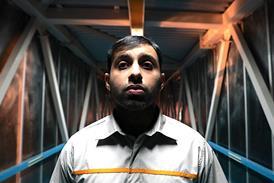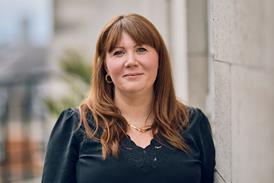Dir/scr: Amos Gitai. Is. 2006. 96mins.
Israelis, Palestinians and others who follow MiddleEast politics closely will find little new, either conceptually or historicallyspeaking, in News From Home/News From House,the third instalment in Amos Gitai's documentarytrilogy about the Arab-Israeli conflict. But audiences around the world,especially at festivals, will appreciate the powerful feelings and personalvoices he brings to a weary subject.
Twenty-five years ago Gitai made House,a modest documentary shot on 16mm film about a house in West Jerusalem and anArab stonecutter who helped build it.
In 1998, he followed up withA House InJerusalem, which continued the story with interviews with the wealthy Arabfamily that had been dispossessed of their property and scattered.
This final instalment revisitsinterviewees from the previous films to see what their lives have become, andadds a few newcomers recently arrived on the scene.
As Gitaitells us, documentary is like an archaeological excavation, whereas a fictionfilm more closely resembles architecture. His sometimes overly insistentvoiceover commentary appears at strategic moments, serving to structure thefilm and explain its themes.
The framework is welcome,since the odds and ends that the film-maker throws at the audience, some timeshelter-skelter, need all the historical and geographical contextualisation theycan get.
But while the explanation issometimes useful as well - especially because the documentary form isobviously, and properly, being used here as personal essay - at other timeslessons are drawn that have already been made clear, if indirectly, by theoften rough and untutored voices of those participants most closely involved(despite the fact that the ever-solicitous Gitaisometimes lets them go on too long).
The film's power thusresides primarily in the individuals Gitai putsbefore us. Two of the more striking figures are an Arab worker who insistentlyasks Gitai why a displaced Palestinian can't haveback the land and house that was taken from him in the aftermath of the 1948war that created the Jewish state. Here, the normally ultra-articulate film-makeris forced to remain mute, and cleverly uses his own silence to make his largerpolitical point in the film.
The second figure is thecurrent Jewish owner of the disputed house, who Gitaiwisely withholds until near the end of the film, after viewers haveundoubtedly, if unconsciously, constructed her as the clear villain of thepiece. Once she appears, she turns out to be sophisticated, insightful,sensitive middle-aged Francophone Jewish refugee from Turkey who makes theinarguable, if somewhat convenient, point that it is not in her power to remakehistory.
Production companies
Agav Films
Hamon Hafakot
Agat Films
Artemis Productions
International sales
Cinephil
Producers
Amos Gitai
Michael Tapuach
Laurent Truchot
Cinematography
Haim Asias
Nurith Aviv
Editor
Isabelle Ingold



















No comments yet